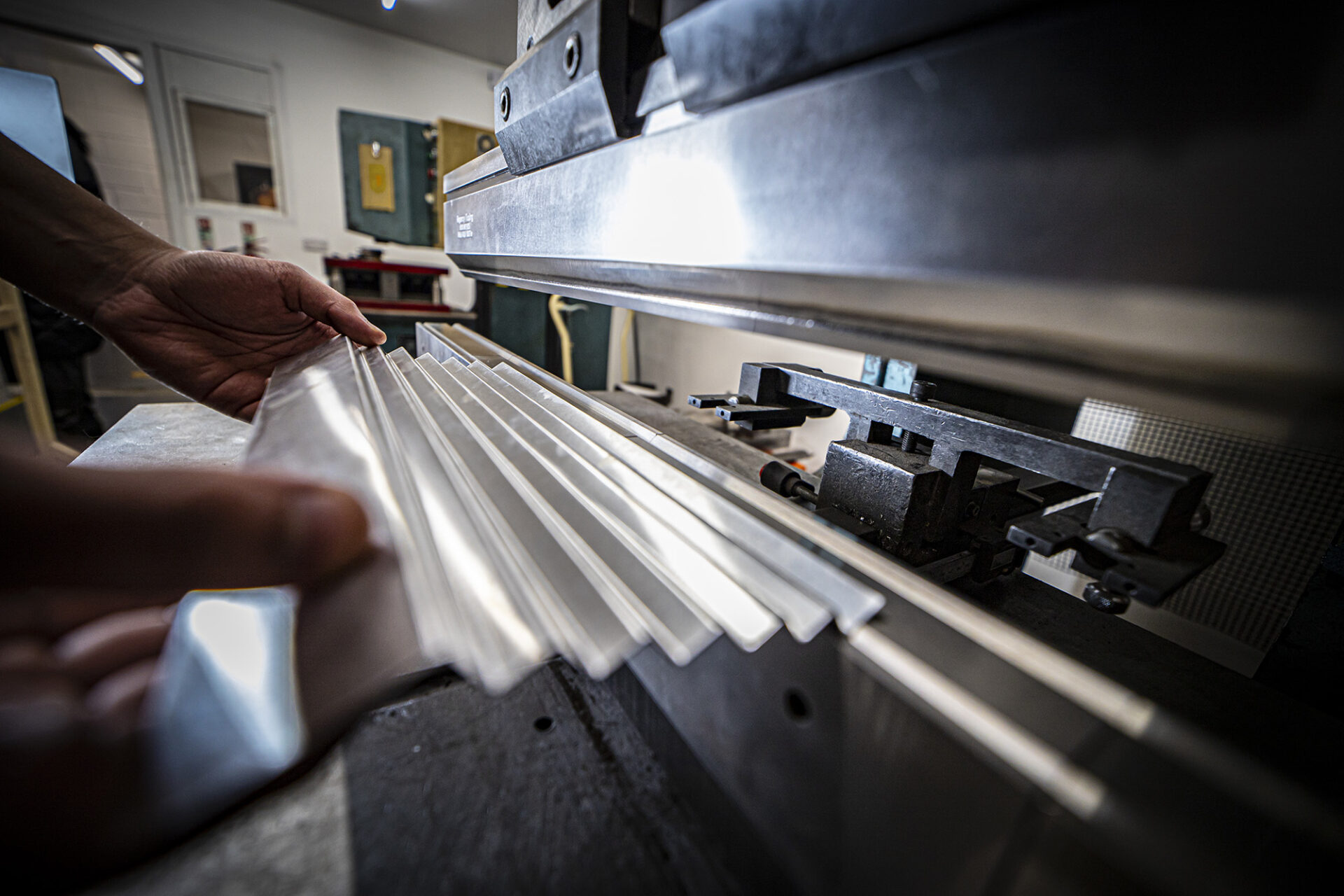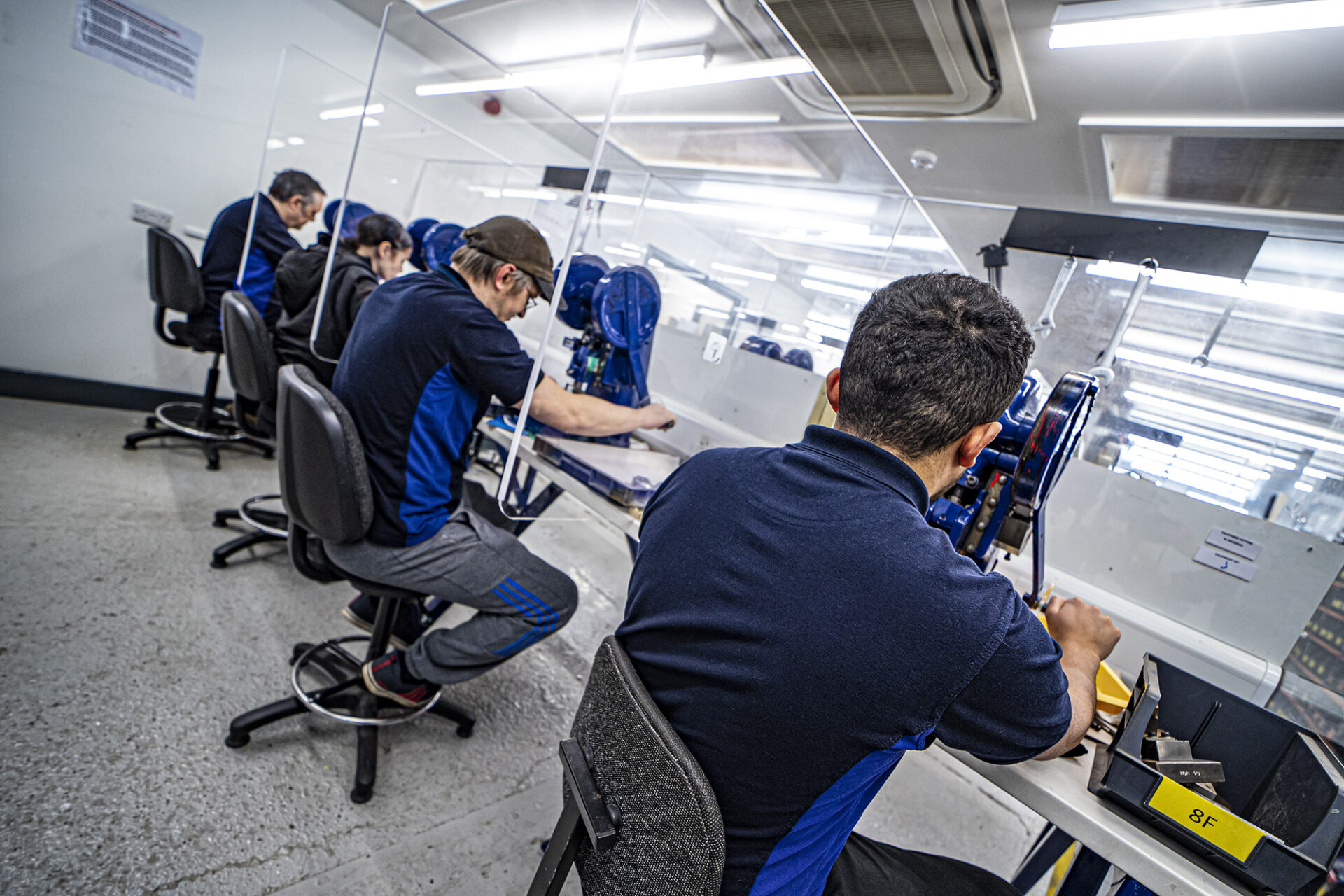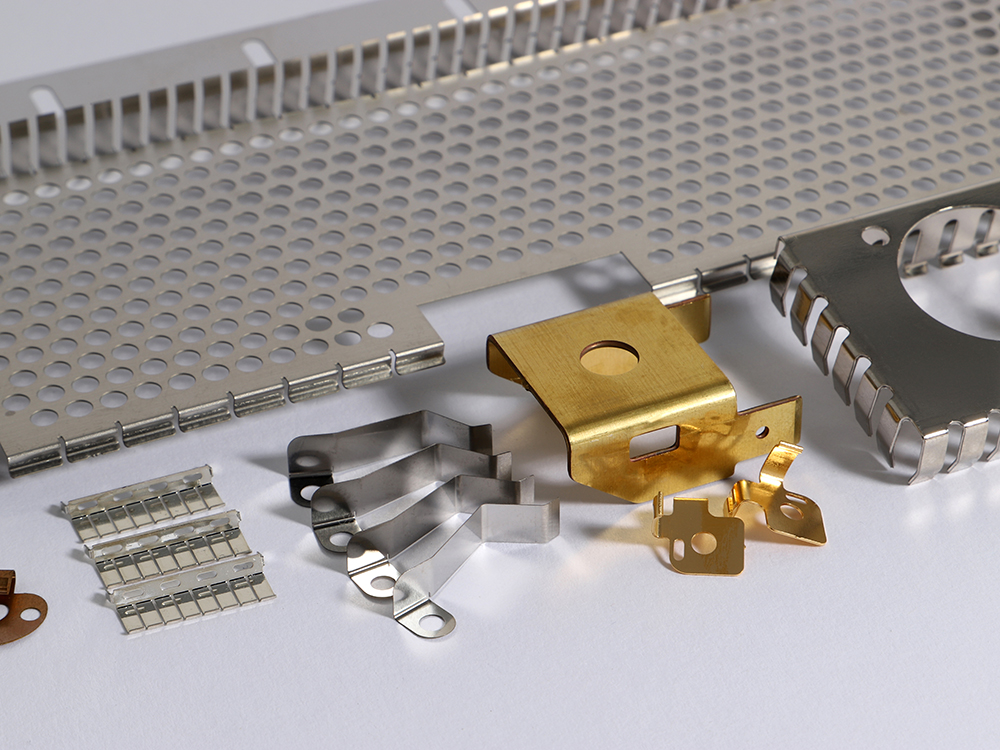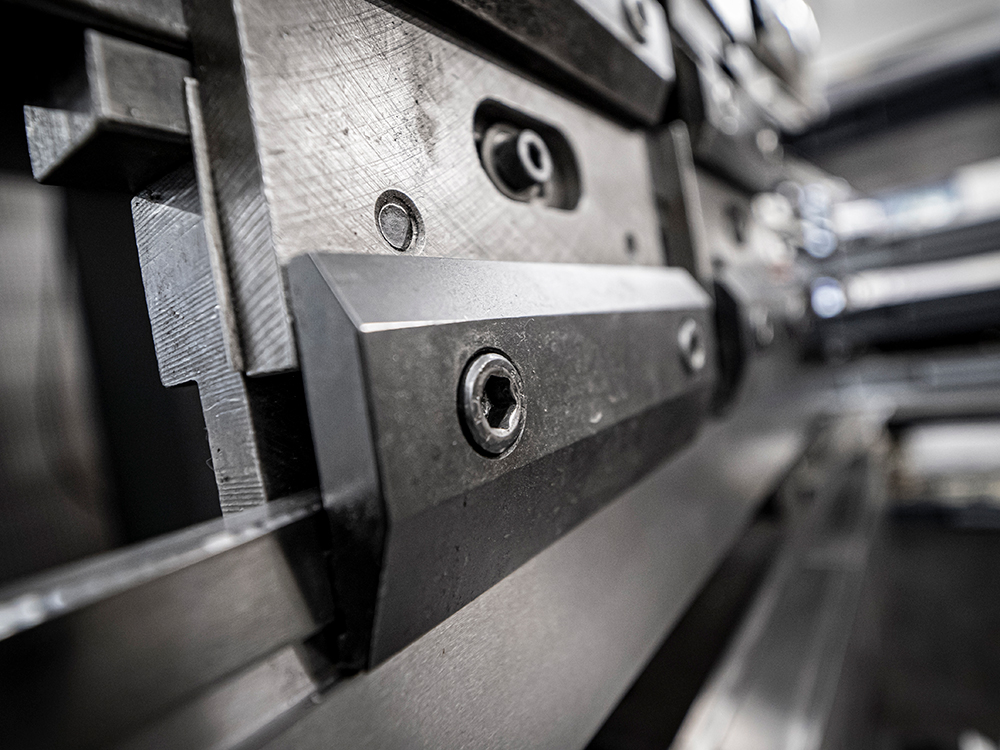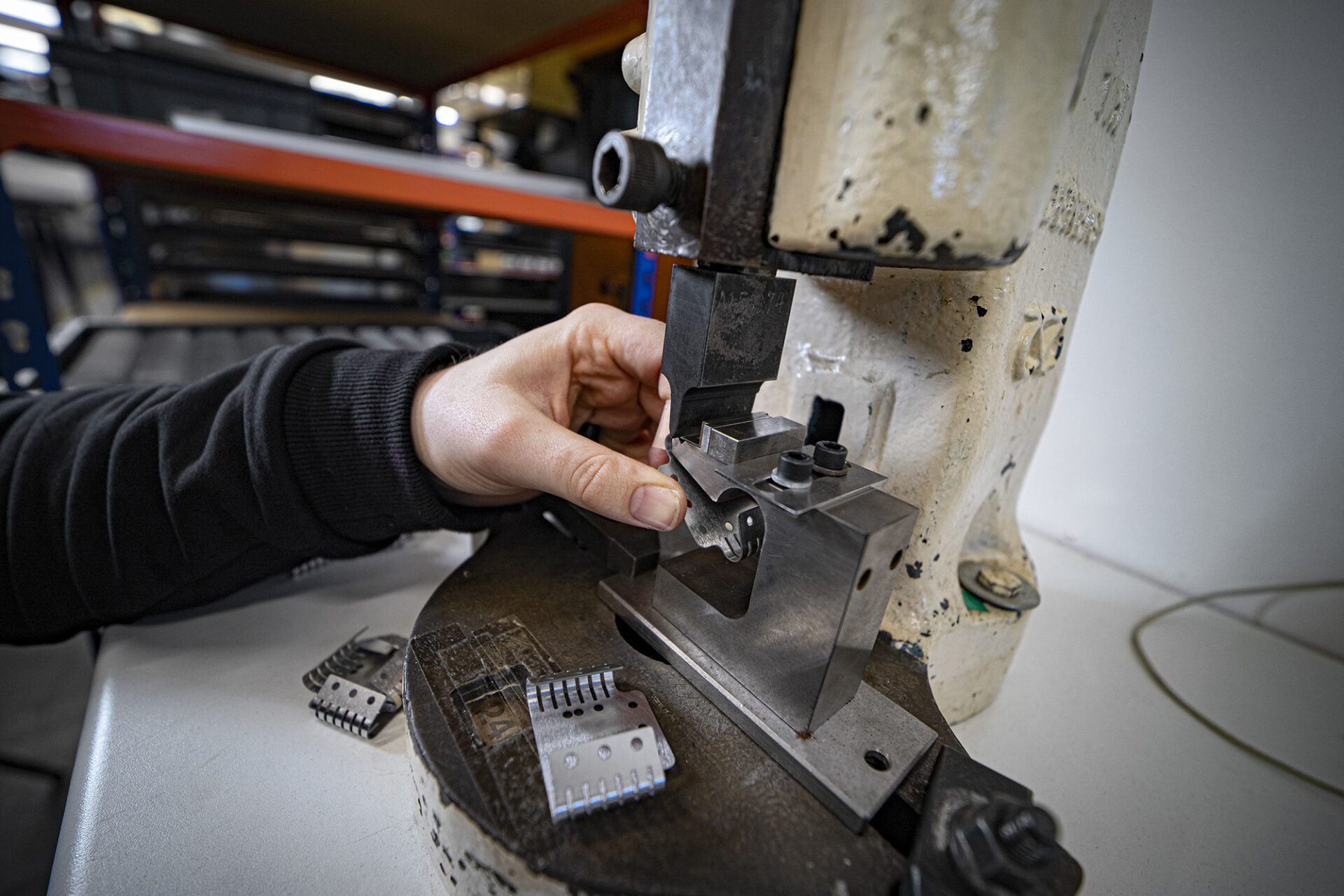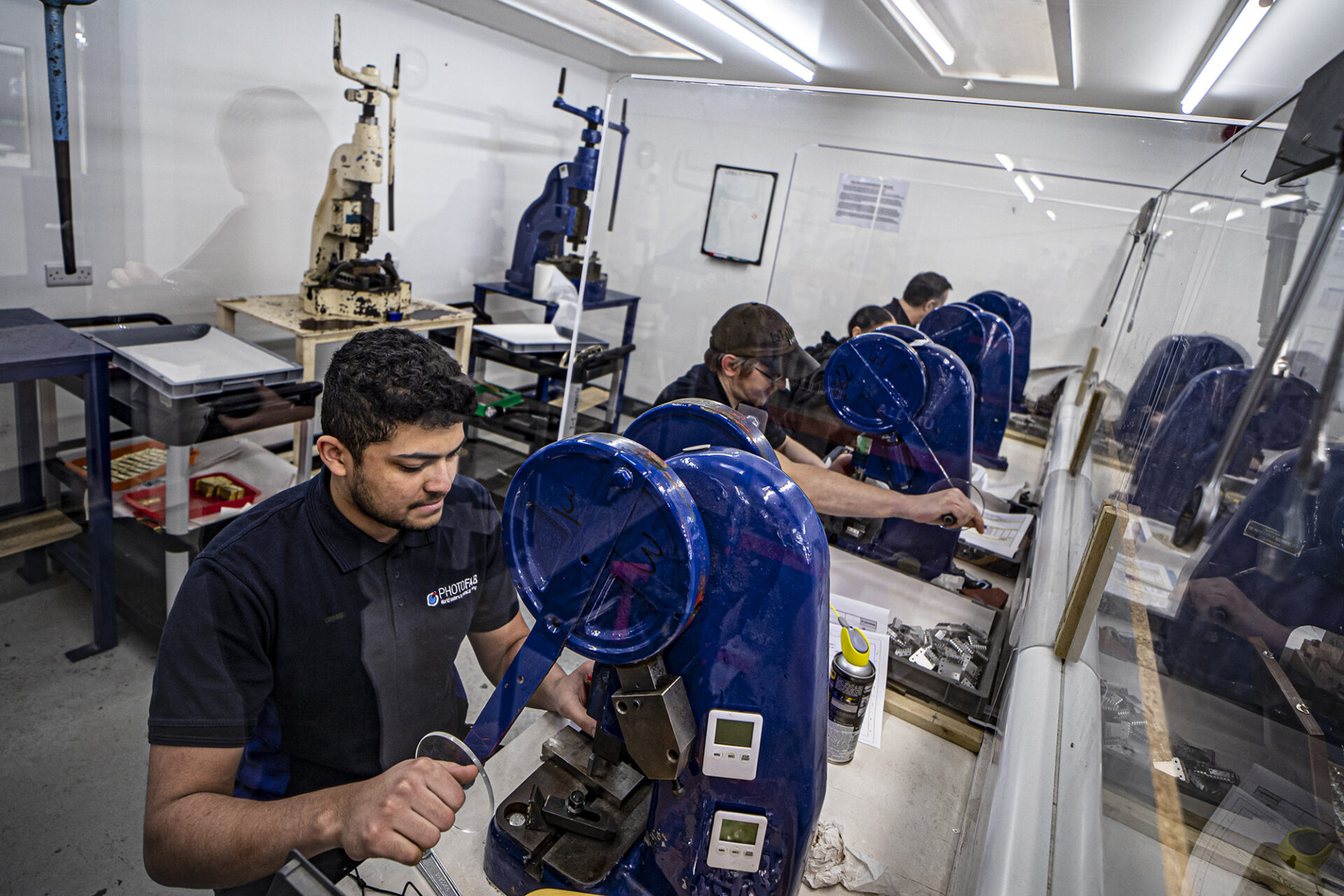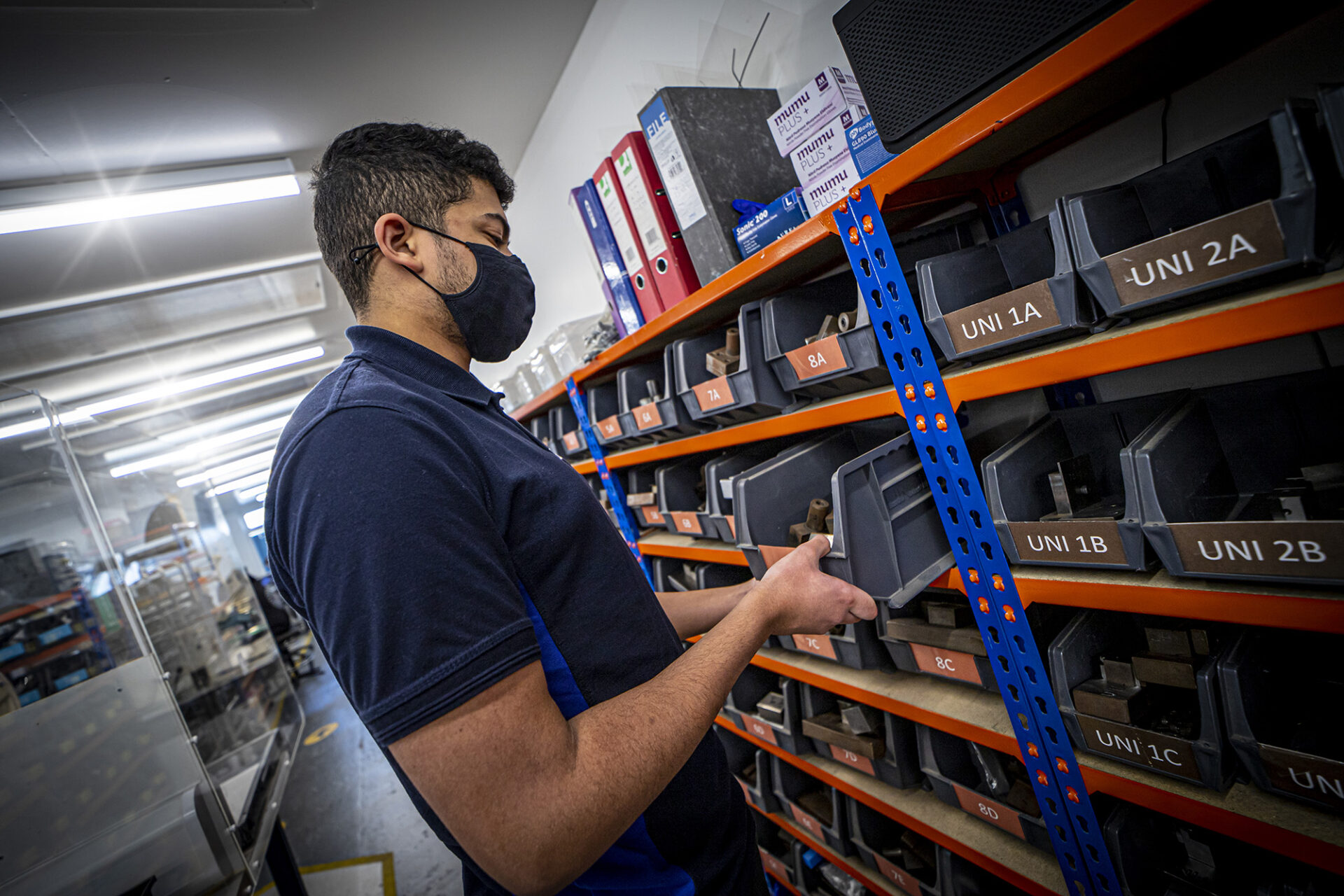With over 55 years of expertise, we specialise in delivering high-quality sheet metal forming and small metal parts manufacturing offering a variety of forming solutions to suit your individual needs. Our in-house design and sheet metal tooling capabilities allow us to produce bespoke components efficiently and precisely.
We pride ourselves on offering a complete service, acting as your one-stop shop for metal parts. We excel within prototyping and low volume production, whilst still having the expertise and equipment to offer competitive rates for higher volume forming production too.
Send a component drawing of what you require and we will do the rest.
Types of tooling we offer are:
- Form Tools
- Blanking Tools
- Jigs and Fixture Tools
The benefits include:
- Quality components
- Repeatability
- Money saving
- Waste control
- Custom forming
- Volume
For more information on how we can reduce your costs & improve lead time contact our dedicated account managers on 01480 226699 or email enquiries@photofab.co.uk.
What is sheet metal forming?
Sheet metal forming or fabrication involves various processes where force is applied to a piece of sheet metal over a hard metal block or tool, to bend or shape the material, modifying its geometry rather than removing any material. Some of the common products created with our tooling and forming service are: PCB component housing, like RFI shields and fan covers, precision springs and electrical contacts, electronic connectors and metal clips.
Along with 100’s of stock universal tooling and capabilities for custom tooling, including custom multi-slide tooling for specialist radial forming. Our capabilities are backed up by a highly trained team and a multitude of presses. We have also invested in a new high impact press for forming thicker metals.
Typical components we etch and form
- EMI/RFI Screening cans
- Flat Springs
- Contacts
- Clips
- Earth Straps
- Brackets
What is Tooling?
Tooling encompasses the range of tools and equipment used in the manufacturing process to shape and form materials. In sheet metal forming, tooling typically involves dies and punches specifically designed to produce parts with precise dimensions and features. The quality and design of tooling are critical, as they directly impact the accuracy, efficiency and cost-effectiveness of the manufacturing process.
Process of Sheet Metal Forming
The sheet metal forming process generally follows these steps:
- Blanking: Cutting a flat piece of sheet metal from a larger stock to create a blank of the desired size and shape.
- Forming: Placing the blank between a die and punch, then applying force to deform the metal into the required shape.
- Finishing: Performing additional operations such as trimming, piercing or surface treatment to achieve the final specifications.
Is Sheet Metal Forming Expensive?
The cost of sheet metal forming varies based on factors such as material type, part complexity, production volume and tooling requirements. For high-volume production, processes like metal stamping are cost-effective due to economies of scale, despite higher initial tooling costs. Conversely, for low to medium volumes or prototypes, methods like chemical etching or laser cutting are more economical, as they involve lower tooling expenses and offer greater flexibility.
Ways to Manufacture Small Metal Parts
Manufacturing small metal parts can be achieved through various methods, each suited to specific requirements:
- Chemical Etching: Ideal for intricate designs and fine details, this process uses chemical solutions to etch patterns onto metal surfaces without applying heat or force, preserving material properties.
- Laser Cutting: Utilising focused laser beams to cut precise shapes from metal sheets, laser cutting is suitable for both prototyping and production runs, offering high accuracy and flexibility.
- Metal Stamping: Best for high-volume production, metal stamping involves pressing sheet metal into a die to produce consistent parts efficiently.
Selecting the appropriate method depends on factors like design complexity, material type, production volume and cost considerations.
Sheet metal forming and tooling options
Our metal forming department covers not only the bending of metal parts, soldering and spot welding, but also complex tooling manufacture using our in-house machinery to surface grind, mill and turn. We specialise in both prototyping and production runs.
Other types of formed components are available including half etch forming. The component will be drawn with a fold line in place and etched to half the thickness of the material, this can then be formed up into its desired shape either by hand or manual hand former. This is very useful for very low prototyping where applicable or EMI/RFI screening cans.
Half Etch Fold Lines
We are able to etch lines into a part. These lines are only etched halfway through the metal. By doing this, the metal can be formed.
- There is no form tooling charge
- Ideal for simple angle bends
- The parts can be formed in house by us
- You can form the parts on site yourselves
- Least accurate method of forming
- More generous tolerances are normally required
Uni-Tool
We have developed a “Uni-Tool”, which is an adaptable piece of hard tooling.
- There is no form tooling charge
- Low part price
- Fast turnaround
- Ideal for simple metal forming operations
- Good for prototypes
- Good for runs of up to 200 parts
- Good for accuracy.
Knife and Forking Prototypes
This is a hard tooling method, which uses several more complicated pieces of universal tooling and can cope better with more complicated parts.
- There is no form tooling charge
- Ideal for more intricate forming operations
- Good for prototypes
- Good for runs up to 200 parts
- Good for accuracy
Hard Form Tooling
Hard tooling to fit one of the fly or toggle presses is made, which can only be used on one particular part.
- This method incurs a form tooling charge
- Ideal for intricate forming operations
- Ideal for large quantities
- Very good for accuracy – generally to within +/- .1mm, subject to drawings
Screening Can Tooling
We have designed a series of tools which are adaptable pieces of hard tooling designed specifically for screening cans, while also providing low-cost options for spring fingered lids.
This is suitable for parts up to 200mm in length and width; however, the spring fingered legs need to be a minimum developed length of 3mm and rectangular for this method to be suitable.
Soldering and Spot Welding
We are able to solder and / or spot weld components, whether you require a seam soldered or two pieces spot welded together we can help.
General Tooling Services
We regularly provide precision surface grinding of metal, along with milling, turning, reaming, drilling and much more. If you have a need for a discipline not mentioned, please do contact us using the form below and ask.
Metals Suitable for metal forming
The foundation of the component is the metal.
We take great care in the selection of the right metal for the component application. Wherever possible, we use a special photo-etching grade, which is more uniform in thickness and flatter than normal stock. Our engineers and metallurgists will be pleased to advise on the grade of metal suitable for your application.
An extensive range of metals in various degrees of hardness and thickness are held in stock ready to meet a Rapid Delivery service. Metal thickness of 0.012 to 1.5 mm is suitable for through etching, and up to 6mm can be fabricated in-house.
The following list of metals is suitable for chemical etching and forming, and many are held in stock. If you don’t see what you need, please telephone us on 01480 226699 or contact us using the form below.

Stainless Steels
Austenitic (301, 302, 304, 316, S526, S527), Martensitic (321, 410, 420), Precipitation Hardened (17/7), Heat Resisting (309, 310)

Other Steels
Mild Steel, Carbon Steel, Tool Steel, Spring Steel, Transil, Losil.

Nickel Alloys
Nichrome, Mu Metal, Nickel Copper (70/30), Inconel, Nickel Brazing Foil.

Nickel/Iron Alloys
Invar, Alloy 42, Kovar, Radio Metal.

Copper
Tough Pitch 101, Oxygen free – High Conductivity.

Copper Alloys
Brass, Phosphor Bronze, Beryllium Copper, Nickel Silver, Ferry Constantan.

Aluminium and Aluminium Alloys

Silver and Alloys
Silver, Silver Alloys, Silver/Copper, Silver/Palladium, Silver Brazing Alloys.
To check the stock of particular metals, or advice on metal suitability, contact us or telephone on 01480 226699.
start your production journey today
If you are looking to find a complete service include dedicated engineering to design and implement your solution, get in touch with us. You’ll be given an account manager who is always on hand to advise and take care of everything for you. Call us on 01480 226699 or contact us now to see how we can add an extra dimension to your manufacturing project. Keep up to date by following us on LinkedIn.
To find out how we can help you
Get in touch today



